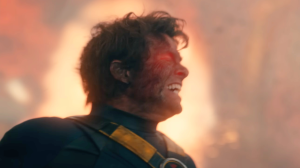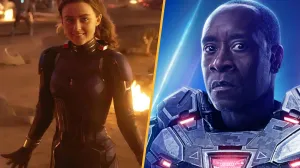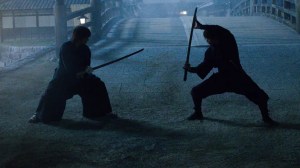
When news broke that EA had effectively dismantled Visceral Games and was taking over their Star Wars project, many fans eager to see the fully fleshed out story were disappointed to say the least. In favour of taking it over and veering away from a linear story into a more online-focused setting, EA took the reigns and the Visceral Star Wars project was no more.
Videos by ComicBook.com
Since the takeover, a few details of what could have been began to trickle out and now we get an even closer look at what looked to be a fairly stunning set up. Now even more has been revealed thanks to Kotaku into what was codenamed “Ragtag,” the untold Star Wars story.
A troubled history:
According to reports, EA and Visceral Games had an incredibly troubled working relationship. First established in 1998 under the name EA Redwood Shores, Visceral Games eventually transformed into the studio we know today with titles such as the Dead Space games and Battlefield Hardline under their belt.
Uncharted director Amy Henning joined the Visceral fray to begin work on a new Star Wars game, codenamed Ragtag. The ambitions were high, and EA saw this as the perfect opportunity for them to break into the action-adventure sect of the gaming world. The game was meant to be a linear adventure focused heavily on the story and the characters involved. The time frame put Ragtag in between episode IV an V in the film-verse and was compared to narratively that of Uncharted and Tomb Raider.
“Visceral’s employees made a set of high-octane demos in which Ragtag‘s main characters would get chased by an AT-ST walker, get into a shootout on the desert planet Tatooine, and embark on a rescue mission within the dungeons of Jabba’s palace.”
According to sources, EA (as they have reportedly done in the past to other studios) but the crunch time down hard. The team was given hard to reach standards in order to get the demo for Ragtag up and running for their official EA presentation. Apparently the “sampler platter’ demo featuring the different angles the game had to offer weren’t enough because shortly after, EA made the official announcement that they were closing down the doors on Visceral Games forever. The staff were allegedly given three weeks to get their portfolios and get out, though the option to stay within EA was reportedly available.
Visceral Games
This is not the first time that EA has taken on projects meant to have a strong narrative focus and pushed them into a different direction. The surprising shut down of Visceral only furthered speculation that “single-player is dead” and many industry and gamers alike were very focus with their thoughts on this market shift. EA’s statement on the matter offered much fuel to this fire:
“In its current form, it was shaping up to be a story-based, linear adventure game. Throughout the development process, we have been testing the game concept with players, listening to the feedback about what and how they want to play, and closely tracking fundamental shifts in the marketplace. It has become clear that to deliver an experience that players will want to come back to and enjoy for a long time to come, we needed to pivot the design.”
Many Visceral employees have come forward, anonymously, to talk about what exactly happened behind the scenes. According to Kotaku, they mentioned they wanted their identities kept secret for fear of what would happen to them professionally. Some have mentioned that EA never really cared about Ragtag at all, that EA felt the single-player “play once and done” movement was a waste of resources, “It felt like we were always under the threat of closure. It was a really unhealthy place.”
EA
EA’s executive vice President Patrick Söderlund released this blanket statement to Kotaku from those that said the company killed off Ragtag solely because it was single-player:
“Making games is hard. That’s not new, but it bears saying again because if anything, it’s getting more complex. But that’s what gets us up in the morning, we love it. We have amazingly talented people making games, and very powerful tools… but expectations are going up at an even faster rate. We see it when we talk to players. We see it in our own games, in the feedback people give us, and how they play. We see it from what other games people love…and which ones they don’t. There are a ton of factors.
This truly isn’t about the death of single-player games—I love single-player, by the way—or story and character-driven games. Storytelling has always been part of who we are, and single-player games will of course continue. This also isn’t about needing a game that monetizes in a certain way. Those are both important topics, but that’s not what this is. At the end of the day, this was a creative decision. Our job is to give people a deep enough experience and story, and it’s also to push the boundaries forward. We just didn’t think we were getting it quite right.”
The times are changing dramatically in the world of gaming. With microtransactions and half-assed DLC as part of a vastly growing trend, it makes many wonder what fate has in store for those companies that still fight for their single-player franchises. As games like The Witcher series continue to prove, there is a large market for this type of gameplay and many developers are very committed to a strong, linear experience.
To read the full timeline on just what went wrong, you can read the full report right here.








